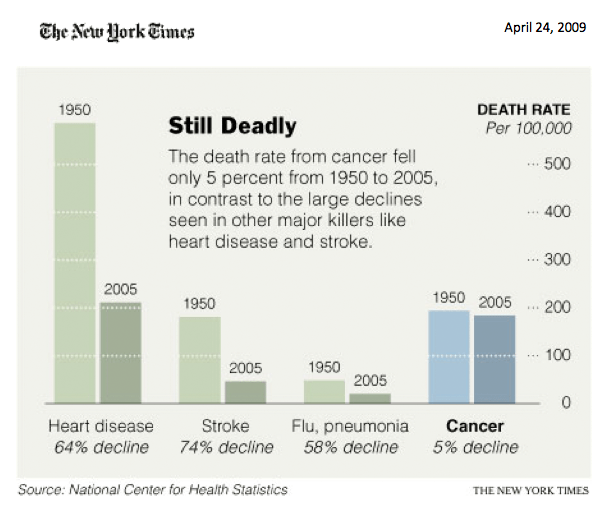MARK53 Knowledge
Although the past 20 years have continuously seen the introduction of new substances in cancer therapy, some 50 percent of patients still don’t benefit from their chemotherapy. The application of designer substances, which are directed at certain cell mechanisms (so-called targeted drugs), have not achieved the breakthrough that had been hoped for.
Tailored cancer therapy
The greatest potential for a comprehensive improvement in the efficacy of chemotherapy or radiation therapy currently lies in a tailored or personalised cancer therapy. However, the clinical implementation of a tailored cancer therapy remains largely theoretical.
Why? Because, until now, there has been not been a powerful, predictive biomarker able to answer the question as to which therapies work for which patients and which do not. During the course of clinical studies, carried out over the last 13 years at the Medical University of Vienna it has now been possible to understand how the p53 gene interacts with the response to cancer therapy.
Thus, for the first time, a genetic biomarker is available that makes it possible to define likely effective and ineffective substances for the individual treatments of the respective tumours.
A highly sensitive, standardised p53 gene test, the Mark53® analysis, now establishes the prerequisites to implement p53 as a predictive marker in cancer therapy.
With the aid of the Mark53®Analyse it is possible to precisely and reproducibly ascertain the p53 gene status from practically every tumour material
